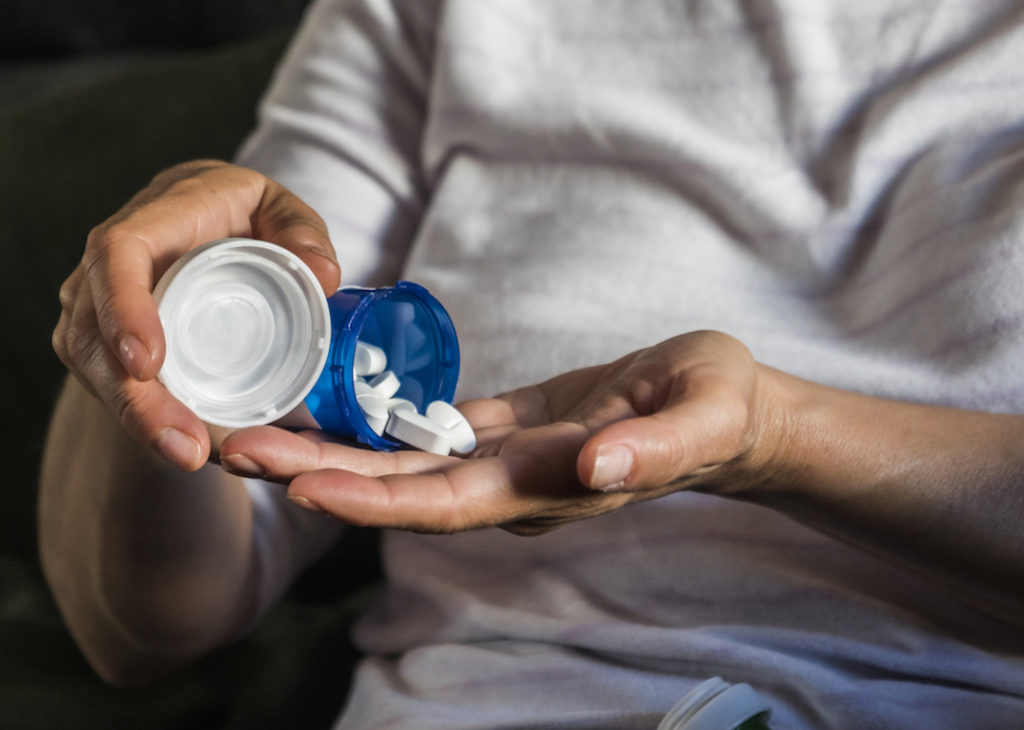Are Calcium Supplements Dangerous?
January 28 2019
Nearly half of Australians are not getting the recommended dietary intake of calcium, which may put many people – the elderly, in particular – at risk of osteoporosis and fractures.
Calcium is a mineral, found naturally in mostly dairy foods, tofu and seafood, that’s essential for healthy, strong bones. Most adults need a total of 1,000mg of calcium per day, which increases to 1,300mg for women aged over 50 and men over 70 years.
Doctors sometimes prescribe calcium supplements to ensure patients get their daily dose. But there have been reports of people stopping taking calcium, believing the supplements can increase the risk of heart disease, kidney stones and stomach upsets.
But before you cease popping calcium pills, read this.
What the research actually says
Calcium supplementation, when required, at a level of 500mg to 600mg per day, is considered to be safe and effective, says Professor Mark Cooper, an endocrinologist and Deputy Chair of the Medical and Scientific Committee at Osteoporosis Australia.
“The issue of whether calcium supplements increase the risk of heart attacks or strokes arises from studies that combined data from lots of smaller studies – where doses of calcium [supplements] were, on average, well above 600mg,” explains Professor Cooper. “Some researchers found a small increase in these risks, but others have not.”
Some studies have reported a small increase in kidney stones among people taking calcium supplements. “This risk of this happening is very low. But calcium supplements should be used cautiously in people with a history of a kidney stone or some other kidney problems,” says Professor Cooper.
Take calcium if you need it
As always, before you start taking – or stop taking – any supplement, discuss it with your doctor first. Calcium supplements are usually only recommended for people who do not get enough calcium from their diet and who may be at risk of falls and fractures.
It’s always best to get your calcium intake from calcium-rich foods if you can. While there’s no test that reliably diagnoses a low-calcium diet, you can calculate your daily intake using the table here.
Have you already been prescribed calcium? Keep taking it. “If you have been recommended a supplement by your doctor and the intake is 500mg to 600mg per day, consumers should continue to take the supplement, as directed,” says Professor Cooper.
How to get more calcium in your diet
Think ‘food first’ – and look for foods that have calcium added (‘calcium-fortified’). Here are some top sources of calcium:
Dairy
- Reduced-fat milk fortified with calcium – 520mg per 250ml serve
- Low-fat natural yoghurt – 488mg per 200g tub
- Regular milk – 304mg per 250ml serve
- Reduced-fat cheddar cheese – 209mg per 21g slice
- Cheesecake – 163mg per 125g slice
Seafood
- Sardines, canned in water – 486mg per 90g can
- Pink salmon, canned in water – 279mg per 90g can
- Red salmon, canned in water – 203mg per 90g can
- Mussels, steamed or boiled – 173mg per 100g
- Snapper, grilled with olive oil – 163mg per 100g fillet
Vegetables, fruit and pulses
- Tofu, firm – 832mg per 250ml cup
- Reduced-fat soy milk – 367mg per 250ml cup
- Dried figs – 160mg per 6 figs
- Soy beans, canned – 106mg per 200g cup
- Chickpeas, canned – 90mg per 200g cup
Where to get more information
If you’d like to get an idea of your risk of osteoporosis, take the quick self-assessment at Know Your Bones, an initiative of Osteoporosis Australia and the Garvan Institute of Medical Research. See your doctor if you’re concerned about the results.
Ask your doctor about your bone health and if a bone mineral density test might benefit you. If so, you may qualify for it to be reimbursed under the Medicare Benefits Scheme. It’s a quick and painless body scan that measures the density of your bones — low density can increase the risk of fractures.
Article originally published on Health Direct.
